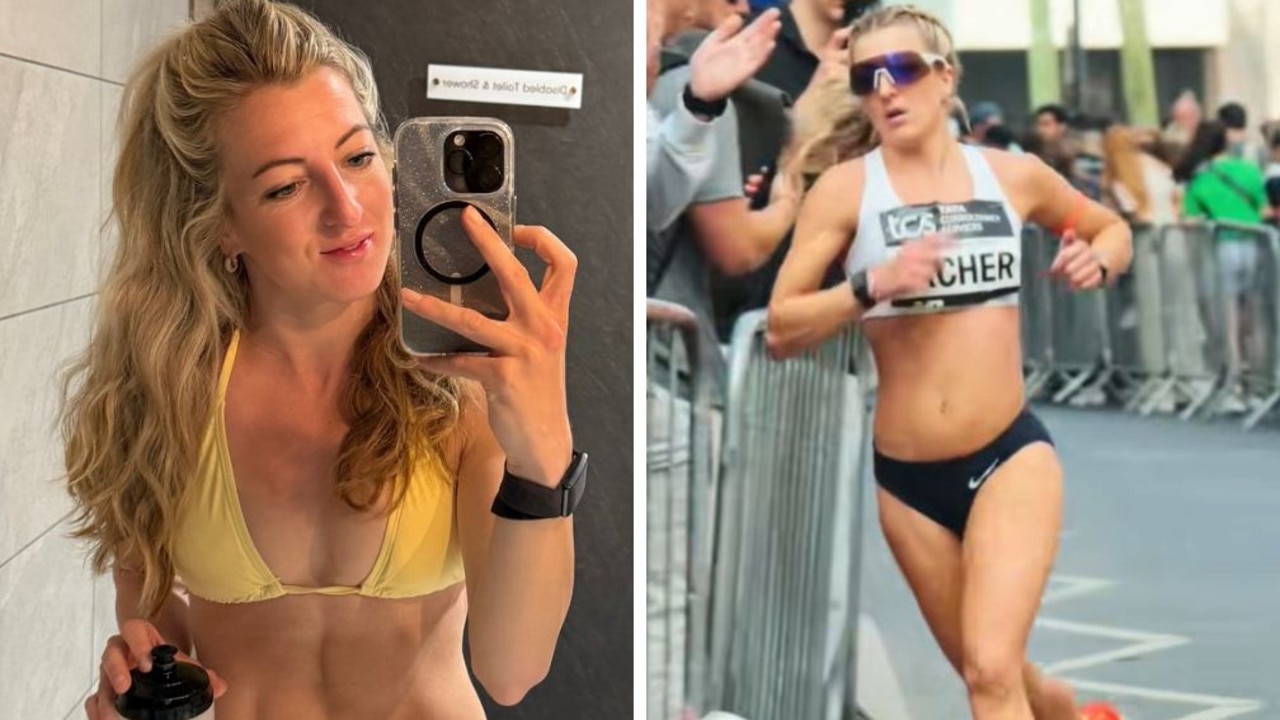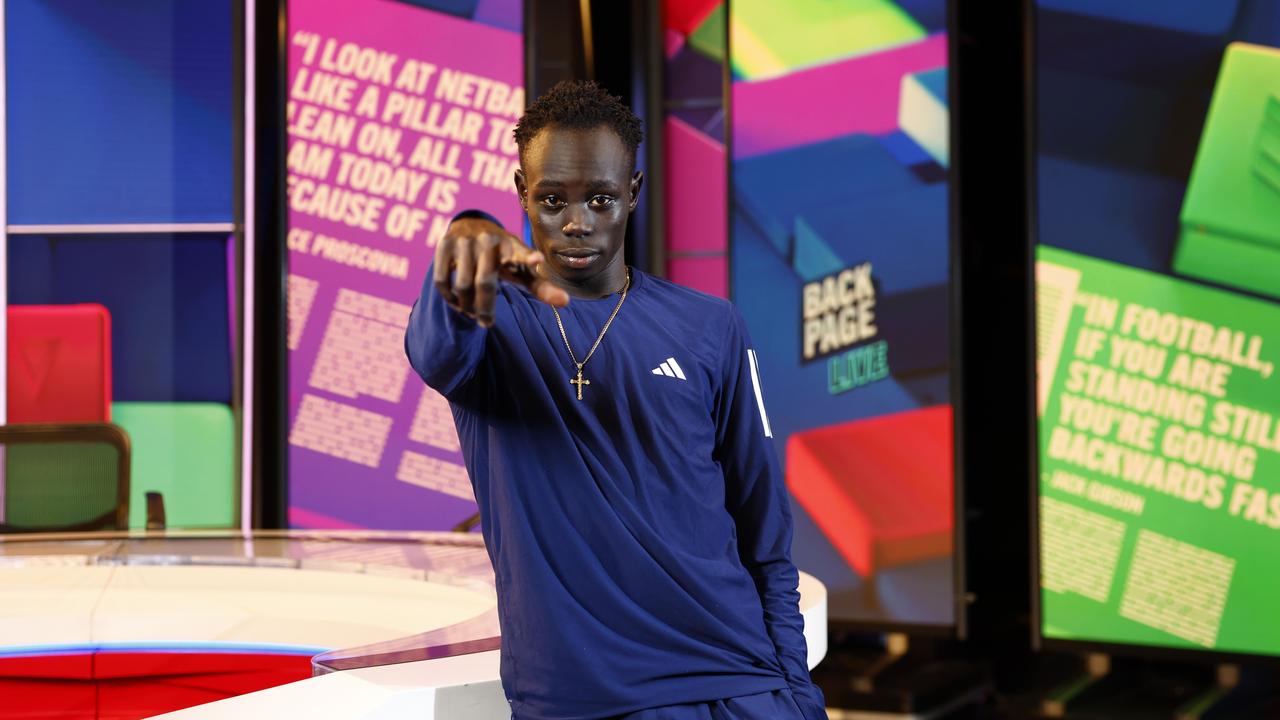Olympic silver medallist Taliqua Clancy on being proud to represent her country and people
Australia’s first Indigenous beach volleyballer Taliqua Clancy says Australia Day should not be on January 26. And she has a simple and unifying message on why.
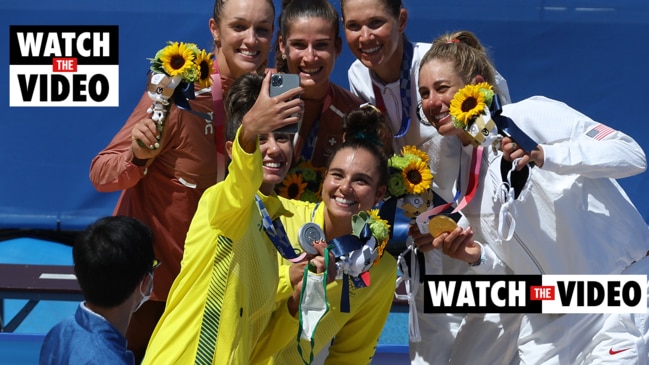
Olympics
Don't miss out on the headlines from Olympics. Followed categories will be added to My News.
Australia’s first Indigenous beach volleyballer Taliqua Clancy is a proud Wulli Wulli and Goreng Goreng woman – and a proud Australian.
With her nails painted with the Aboriginal flag, Clancy – and her partner Mariafe Artacho del Solar – sweated through the Tokyo heat to win a silver medal for a country she desperately loves – but also wants so much more for.
Clancy grew up in Kingaroy, Queensland – red dirt, peanut country – not a beach in sight for hundreds of kilometres.
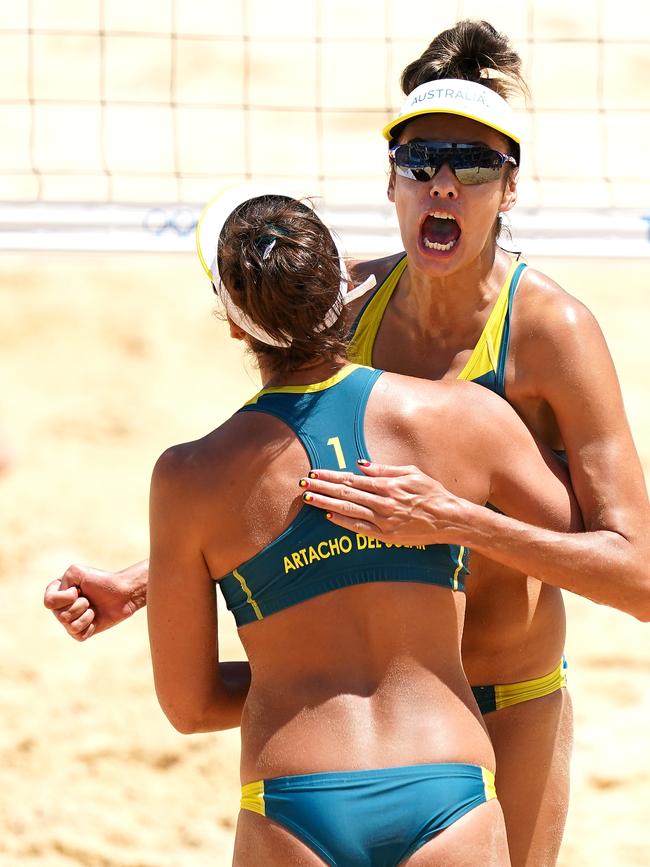
But on the sands of Shiokaze Park in Tokyo, she joined the likes of Cathy Freeman and Nova Peris in becoming an icon and role model for her mob.
But today, Clancy is using her voice in the hope that all of Australia’s mob come to understand why reconciliation – and changing the date of Australia Day – is so important to First Nations people.
There is one thing that Taliqua would like to make clear: “I am proud to represent my country, I love my country and I am also proud to represent my people, because I love my mob.”
“And the two are inclusive ... changing the date makes it inclusive to all of us and represents solidarity ... it would truly represent that we are a united nation.”
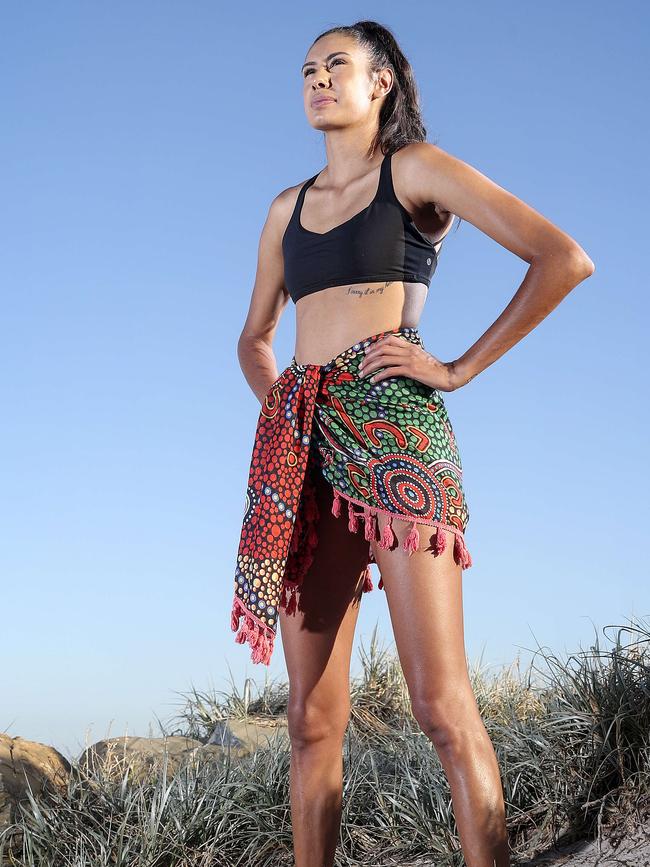
Q: Have you yourself experienced racism, do you at times feel like you live between two worlds?
Yes, 100 per cent ... now as an adult, I notice more times I had the battle while growing up.
Being lighter skinned, the conversation that happens, it’s difficult. When people ask ‘what percentage are you’, I mean I’m Aboriginal, that’s all I’ve ever grown up as. It is extremely hurtful when you get asked those sorts of questions.
I think overall it’s moving in a better direction. But when you don’t have Aboriginal people in your work or sporting teams - you get misunderstood a lot. It happened when I was an up and coming athlete. So hopefully through what I and others are doing, we can try to stop happening for other Aboriginal athletes coming through.
Q: How do we bring mainstream Australia on this journey? How do we travel on the same path to know more and be better?
A: It’s all about having those conversations and moving towards reconciliation.
Q: If you were to pick one particular conversation that all Australians should be having when it comes to First Nations people, what would that be?
Not avoiding the hard conversation of what happened in Australia and our history. I think with that comes reconciliation. By having the acknowledgement of the real history, it will bring about reconciliation.
Q: What does Reconciliation Week mean to you?
It is a good time for everyone to come together. That’s what I really love about Reconciliation Week, it’s an opportunity to be learning and educating each other and again having that conversation.
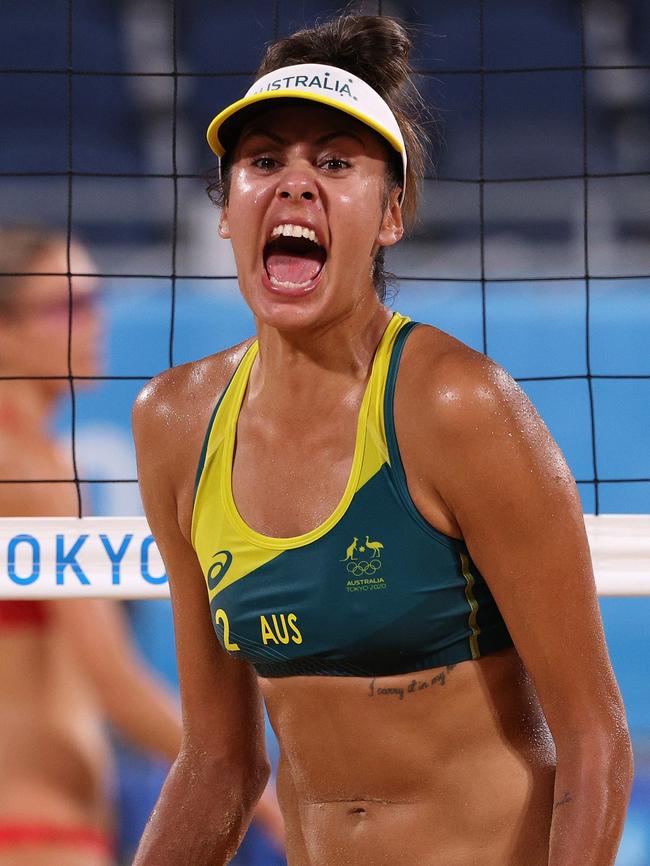
Q: Can you tell me why changing the date is important to you?
Changing the date is extremely important. We are the only country in the world to celebrate genecide, which is just not OK.
There is a shift happening in Australia which is awesome, you can start to feel that shift. I feel like Australia is more towards changing the date, we are just note there yet .
Q: Why do you think it is important for all Australians to play a role in Reconciliation?
We need to all start having that conversation, and understanding the history. Knowing the true history of our country, because it’s a part of all our history and we can’t shy away from that. Until that truly happens, we won’t be able to heal.
Q: You have been appointed to the Australian Olympic Committee Athletes’ Commission - how important is it to have an Indigenous voice on the Commission?
Extremely important. The AOC has done an incredible job of setting up the Indigenous Advisory Group who took the initial steps of ensuring our indigenous heritage is recognised.
The good thing is that the Advisory Group has indigenous athletes, past and present, who pathed the way and helped bring about the changes that we saw in Tokyo which was amazing.(Patty Mills - a Naghiralgal and Dauareb-Meriam man from Torres Strait and Kokatha man from South Australia’s west coast - was the first Indigenous man to carry the nation’s flag in the Opening Ceremony, while wearing a facemask with traditional patterns).
It is important that we have an indigenous voice on our Athletes Commission and I’m really pleased to be part of that.
Q: What did it mean to see Patty with the Indigenous flag at the Opening Ceremony and also the Matildas, carry both flags into competition?
Those moments are extremely special and certainly I felt immense pride come over myself during those moments. What makes me more proud, is that young indigenous people back home were able to see that and I hope that they can then aspire to achieve their goals, sporting or others, by seeing our mob out there.
Q: You’re also an ambassador for Deadly Choices, is this about connecting more with community?
I am really pleased to be an ambassador for Deadly Choices. It’s more than just connecting with the community - it’s about Aboriginal health which is a very important topic to me.
It’s an area that our mob don’t have a great understanding of and it’s an area if I can help to give back to and make the community a little healthier through nutrition and exercise education, that would be amazing.
As an athlete, I feel like that is a great area to give back to my community.
More Coverage
Originally published as Olympic silver medallist Taliqua Clancy on being proud to represent her country and people



